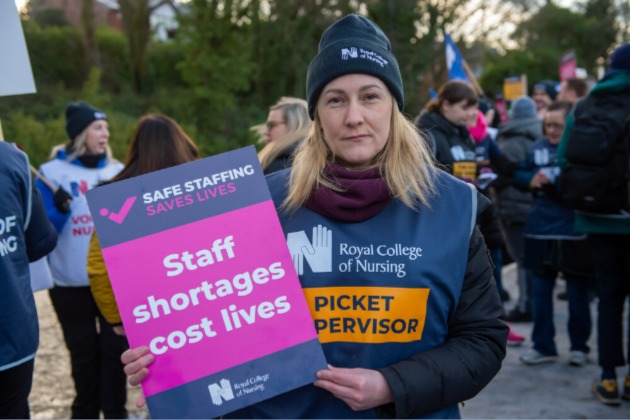RCN member Jayne Ellis decided it was time to take care of herself after her work brought her to breaking point. This is her story.
At my lowest I sat on the kitchen floor, wondering what to do. My work as a nurse had just about broken me. The huge workload, chronic understaffing and keeping going for longer than I should have had once again resulted in a massive panic attack.
I’d followed the conventional wisdom of taking sick leave, counselling and prescribed medication and returned to work as “mended” but each time I discovered nothing had changed and moved to a different nursing role to see if that would solve the problem.
I told myself this time had to be different and found a part-time job at a local hospice. My role as a discharge co-ordinator gave me a unique insight. Some care staff were so beaten down that the way they interacted with me and each other was truly shocking. I hardly recognised my own profession.
This wasn't just stress as we know it
I had to walk away and try to figure out what was going on. That’s when I read about compassion fatigue. This wasn’t just stress as we know it. This was much more – this was a kind of stress caused by fear that has an impact on your soul. Your central nervous system is so fired up you’re afraid to go to work and you’re no longer able to react compassionately to what’s going on.
Nursing staff are expected to use their compassion to help others but we can’t keep running on empty. If we can’t keep giving, we feel like we’re failing as it’s such a fundamental part of the job.
It’s not a disease, illness or disorder; it’s a set of symptoms describing what’s happening to you. When you know about it, it seems obvious, but when I looked around for expert help I found there was very little in the UK. The only other organisation I could find offering training in how to overcome compassion fatigue was an association helping people who are foster carers.
So I found out more myself, completed the appropriate training and developed courses to help companies and their staff address the issue. From day one, I witnessed how important this training is. The realisation that it’s normal to feel this way, that many of our colleagues feel the same and that we should actually expect to experience this when doing the kind of work we do is an emotional “lightbulb” moment.
It's normal to feel this way
But so much more needs to be done - millions of pounds are being wasted with staff off sick and no effective plans to keep them well when they return or indeed prevent them from getting sick in the first place. We need buy-in from the top. We must move away from the “get on with it” culture, with emotional health and safety training introduced from day one. To address this really serious problem we need to embrace it, understand it, and listen to what staff say.
Jayne's tips
- Be aware: acknowledge you’re suffering from compassion fatigue and remember it’s natural to be affected by the work you do. It’s OK not to be OK and it’s OK admit it.
- Look after yourself: show yourself the same compassion you show others. Stay as fit and healthy as you can; exercise and eat well and spend time with loved ones; have fun and take your time off.
- Seek help: you shouldn’t expect to be able to manage compassion fatigue alone. If you need immediate help, see your GP, your occupational health team, or consider approaching a counsellor for support.
Take a compassion fatigue test at eftraining.co.uk
Employer’s responsibility
Sarah Murphy from the RCN’s counselling service says: “It’s the employer’s responsibility to provide a safe working environment as it’s the nature of your work that’s the main contributing factor to developing compassion fatigue. There’s lots you can do to care for yourself. Talk to your colleagues, share experiences and don’t be worried about seeking help.”
Support for you
The RCN’s Healthy Workplace, Healthy You campaign supports nursing staff to lead healthy lives so they can maintain both physical and mental wellbeing. It has resources to help you develop and maintain your own self-care plan and guidance to help you prevent and manage emotional stress.
Find out about the RCN’s free, confidential counselling service.
Jayne’s thoughts are her own and not necessarily representative of the RCN.
Interview by Sharon Palfrey. Picture of Jayne by Duncan Soar.








